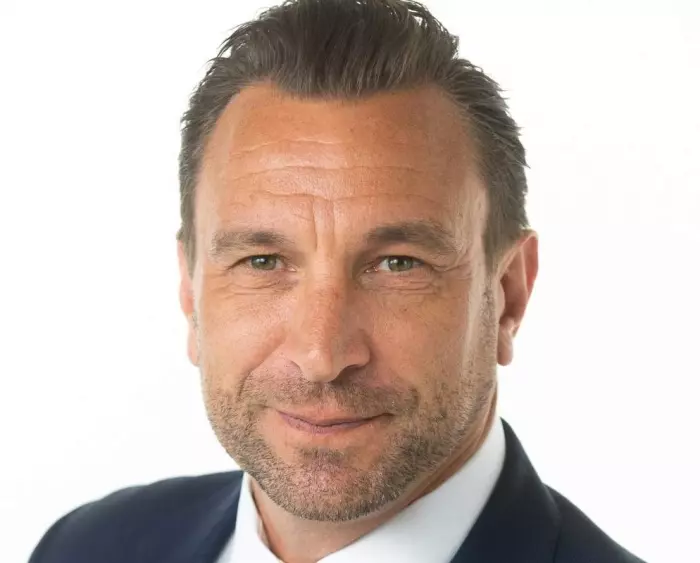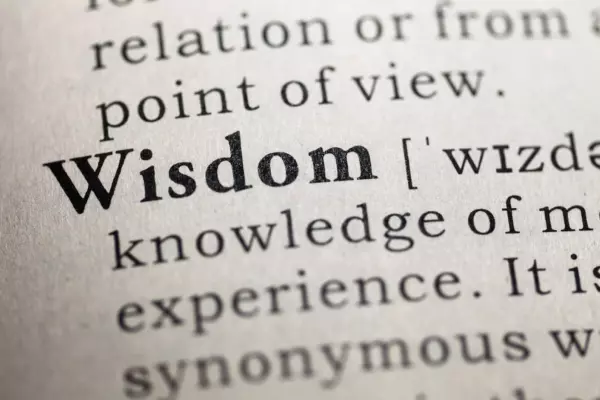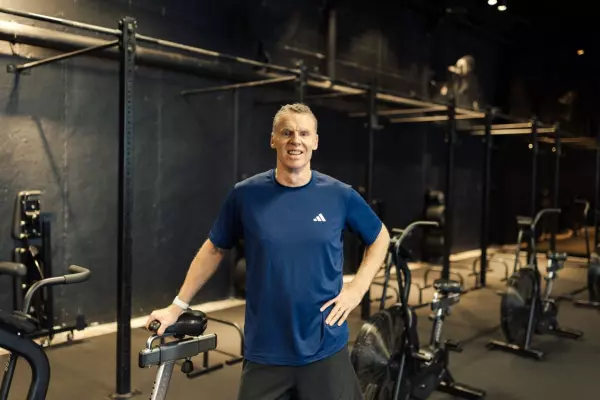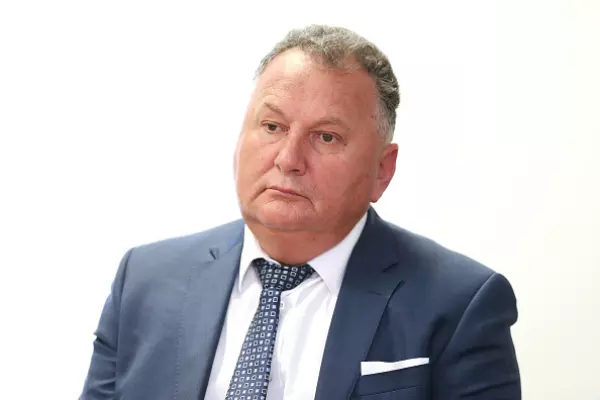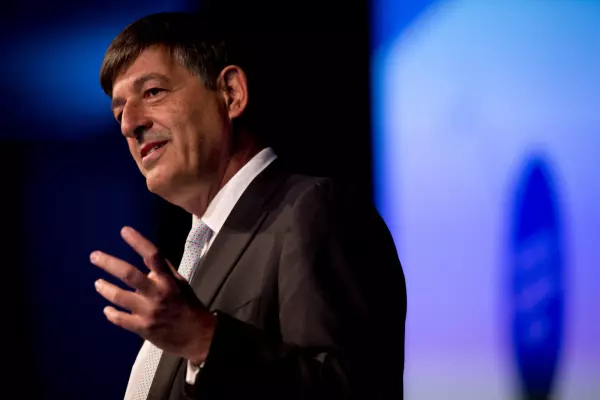As chief executive of the country’s biggest business advocacy group, Kirk Hope represents thousands of New Zealand firms of all sizes. Before taking up the role in early 2016, he was CEO of the NZ Banking Association and an executive director at the Financial Services Federation. His love for how businesses tick has always drawn him toward the business world and he doesn't plan to leave it anytime soon. Hope grew up in the South Island and spent almost half of his life in Wellington, but he currently calls Auckland – and its many surf-friendly beaches – home with his wife and two daughters.
When I was five, I wanted to be Perry Mason. I thought court lawyers were incredibly cool and they were always on TV. I loved cops-and-robbers stuff and the way the story always played out. That’s probably what appealed to me the most as a five-year-old.
I spent my childhood primarily in Nelson and Dunedin. Even though I’ve spent 26 years of my life in Wellington, where you grow up defines you for a really long time.
I was probably a shy child, an overachiever, a teacher’s pet and a teacher’s nightmare at different stages through my schooling. I was reasonably diligent as a student, and I enjoyed learning.
The importance of education was drummed into me by my mother and my grandparents when I was growing up. They felt education enabled you to lead a better life. As a result, I didn't want to let them down, so I became pretty committed to school.
My favourite subject was history. We had this great social studies teacher when I was in the old fourth form. His name was George Kay, and he was a Scottish guy, but he was also a writer for the music magazine Rip It Up. So he was, like, the coolest person in the universe.
We spent a lot of time with my grandparents as we moved closer to them when we were young so my mother had more support. My grandmother only died last year at the age of 95, and I'm 51, so she was a big part of my life growing up. My siblings would say I was my grandparents' favourite but I actually think we were all their favourites.
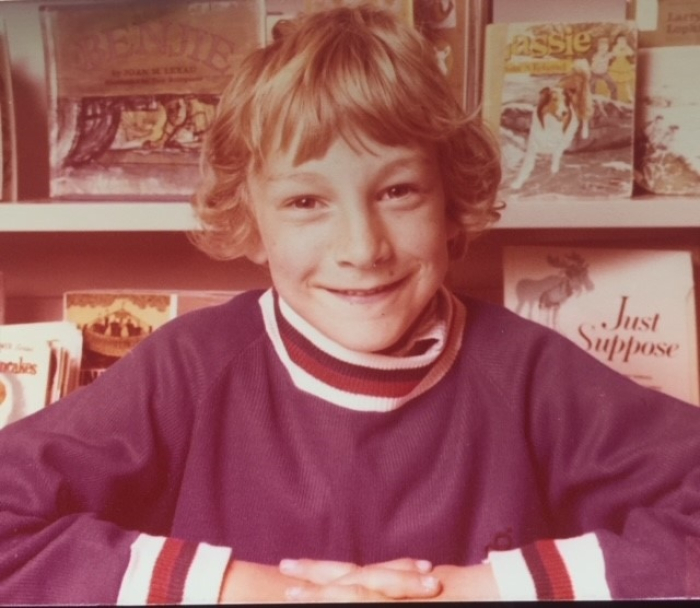
Kirk Hope, aged 8. He says his mother and grandparents drummed into him that education enabled a person to lead a better life. (Image: Supplied)
Having lived in Wellington 26 years, I was pretty enculturated in its rhythms as a place. And it's really the beating heart for government – a very government-centric city.
My favourite part about living in Wellington? Well, I'll get killed if I don't mention that a large part of it is the people, obviously. And I played some very low-level football with some very high-level people and a masters football team. Those connections are fantastic.
So is the accessibility of Wellington – like, it's a boutique city. When I'm staying there, if you go for a run, you basically cross one road and you’re into the city. It's easy to get around and it's a cool place.
The creative sector that operates in Wellington is clearly world-class. And for a relatively small city, it's got a lot of really significant benefits, like its quality tertiary institutions.
It's also got great food and coffee and those things make the city go around. And beer, of course. But also the relationships and the proximity of really interesting and smart people.
Here in Auckland, while public policy matters, business steams on ahead, frankly. It's interesting that there are quite different focuses, I think.
I ended up doing law at university, but I've never practised. It's been a great tool to assess public policy. I don’t regret never having practised as you have to specialise to a certain degree.
The amazing thing about the career path that I've taken in industry organisations is I haven't had to do that. As a result, I’ve gotten involved in some really interesting things, which has kept my brain ticking.
In my view, good businesses are good at business. And that's why they become good businesses. Wherever you are and whatever you’re doing, business is about relationships and about how you can form partnerships with groups or individuals that can help you or help their business go forward.
I’ve got two daughters and I’ve tried to teach them a lot of things. Not just necessarily about business, but also about life. I’m big on not being afraid to ask for things, essentially, because I think that sometimes we can be a bit passive – although I generally sense a generational difference around that, though.
Being more direct, not being willing to say, "Oh, no, I could never ask for that" or "I couldn’t do that" – that’s what I try to teach the girls. And I tell them that if they want something, go and get it – or find someone to help you get it. Usually, that's me buying them something.
But a practical example of how that plays out is really supporting them to have the confidence to build relationships. That’s such a core part of how this gets done. If they're not willing to approach a person or talk to them then that just gets harder and harder for them.
I find exercise is critical. It makes a really big difference to mental health. I find that if I haven't exercised for a couple of days, I feel flat. So whether it's biking, running, walking, playing football, surfing – all of the above – those are the kinds of things that really help me to de-stress. And, of course, New Zealand's fine beverages also help – in moderation.
Strangely enough, sharing experiences with other CEOs also helps. I'm in an incredibly fortunate position to be able to do that. Over covid, I had four CEO colleagues from the Business New Zealand Network and we worked very closely together and were supporting each other during some quite challenging experiences.
Seeking their advice and their thoughts, because they're all really talented, smart and experienced people, really helps. And it’s really helpful if you can't be bothered getting off the couch and going for a surf or a bike ride or playing a game of football.
if I were to completely take myself out of business, I can't imagine what I would do. Perhaps assist an NGO like Kids Can or something like that, where you’re able to use your business skills and experience to help.
I consider my biggest failure to probably be the inability to convince the government that the Fair Pay Agreements Bill was not the way to go. I do reflect on what more we could have done, but maybe they were always going to do it.
What does the future hold for me? Who would know? There are a few things I still want to complete from an academic perspective at some point. I do want to complete a PhD, probably in economic history, but that doesn't happen overnight – not unless ChatGPT learns to do more than 10,000 words at a time.
I got really back into surfing about eight years ago when my younger daughter was about five. She still surfs, and when we're on holiday on Waiheke Island earlier this year, we got some really nice waves. In Auckland, I love the accessibility to new places to go surfing, like Piha and Tāwharanui, which are beautiful.
My god, the people are the best part about NZ. We’ve got a pretty unique culture. One of the benefits of growing up here is that you can engage with anyone, and that really shows up when you go overseas. I also find that curiosity really helps in overseas business environments.
What do I like least here? Shit summers. I detest them.
As told to Ella Somers.
My Net Worth profiles may be edited for clarity.


